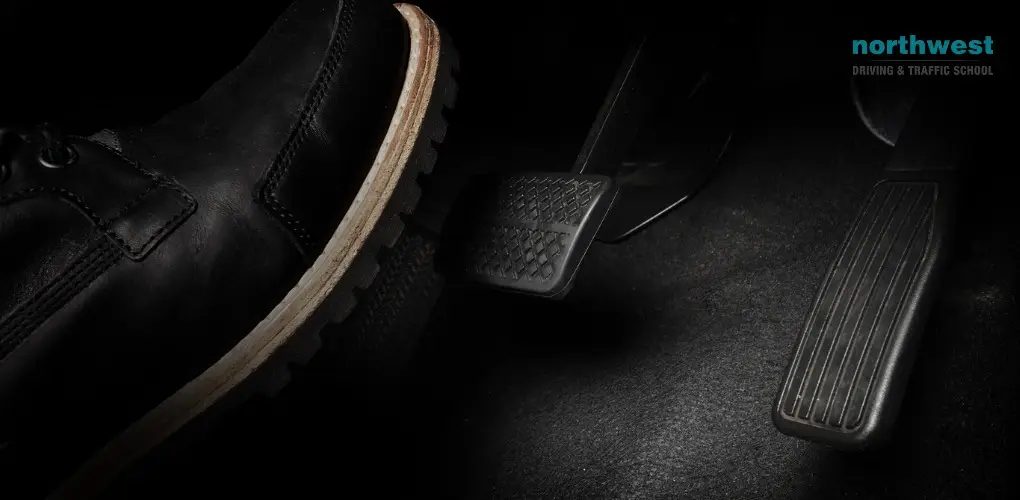- Others
Transmission And Brakes

TRANSMISSION
All that power coming from the crankshaft goes to the wheels through the transmission, which is a set of gears designed to either give you power (low gears) or speed (high gears) Most cars have automatic transmissions which constantly shift up & down for you while you have it set on D for Drive. However, you may need to shift sometimes, like riding a bike.
For example, if you are going up a steep hill in a small, 4-cylinder engine, with 4 people in the car, shift down to Low (or perhaps 3rd or 4th) to get more power to make it up the hill. You will hear the engine rev as your RPM increases while the wheel speed decreases.
The opposite happens in high gears, or overdrives, intended for more speed, on flat highways. Now, the RPM goes down, the wheel speed goes up, and the engine is relatively quiet. Your gears are there to safely handle different terrain & road conditions without damaging your engine. USE THEM.
BRAKES
The first rule of physics is that energy never disappears; it just changes form. Your 3000-pound car going 30 mph produces incredible forward energy or momentum. For any vehicle to stop, that energy has to be changed into friction & heat energy. Your power brakes are hydraulic (fluid under pressure), running to the calipers with brake pads inside. Humans alone can barely stop a bicycle at 10 mph, let alone a 3000-pound car at 30 mph! The caliper then squeezes the rotor, producing… friction & heat, gradually slowing the wheel down. This requires far more time & distance than most people realize…over 120 feet at just 25 mph!! This is why tailgating is the most dangerous thing drivers do. Everyone thinks they can stop in 10 feet, yet no one can, resulting in far too many completely avoidable rear-end collisions.
You may ask, “Why do I need to know all of this?” Well, every time you use your brakes, the pads wear down and must eventually be replaced. If you don’t even know they exist, how will you know to replace them? Then, one day, you brake, and …nothing happens except a crash.
Remember, cars don’t die…they are killed. They are killed by neglect from owners who don’t perform the routine maintenance to keep them alive & running smoothly. Car problems do not age well; fix them while they are small and relatively inexpensive. So, if you want your car to last longer than the payments:
- Read the owner’s manual
- Follow the maintenance schedule
- Take it to the shop regularly
If all of this sounds like too much trouble, good news! Magic Squirrels are on sale at Auto Zone for only $49.95 for a six-pack! Drive safely, and happy motoring!


